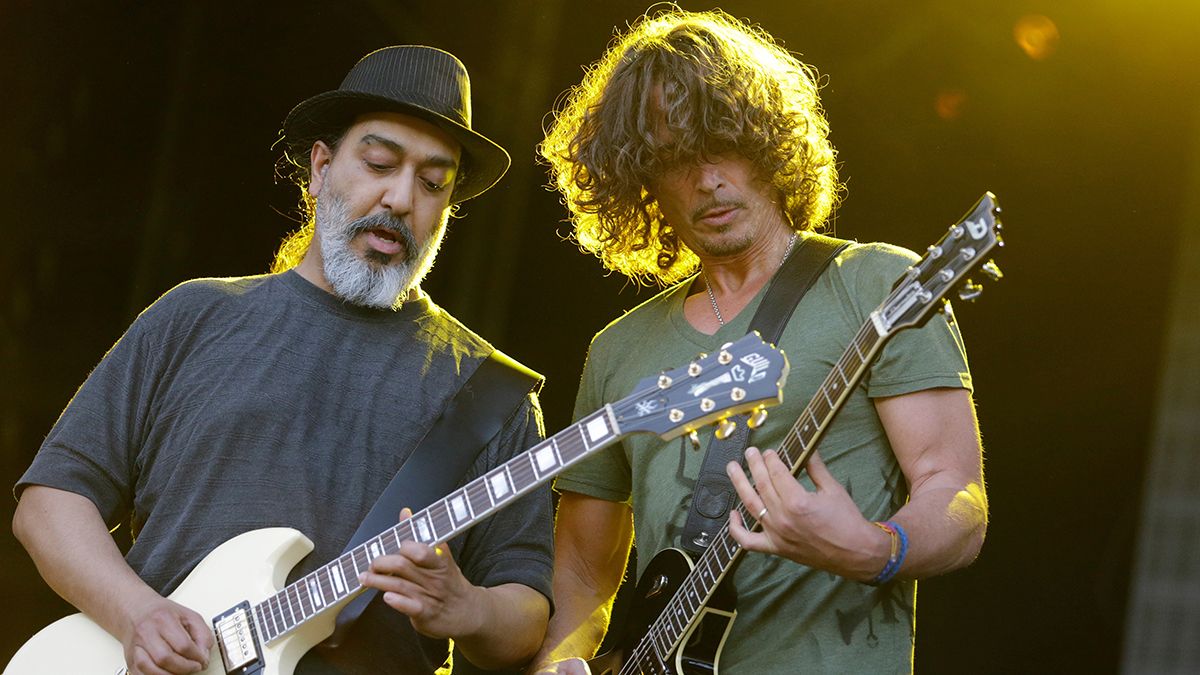
Soundgarden guitarists Kim Thayil and Chris Cornell's preference for tunings that go beyond drop D is no secret. Indeed, alternate tunings became a significant part of the band's sound – so much so that they influenced the rest of the Seattle scene, including Nirvana and Alice in Chains.
One such tuning was EEBBBE – used in My Wave and The Day I Tried to Live (from 1994's Superunknown) – as well as the notorious EEEEEE (yes, that's six Es) on Mind Riot (from 1991's Badmotorfinger).
“Chris came up with that. I think that was from a conversation he had with [Pearl Jam’s] Jeff Ament, possibly during the Temple of the Dog period,” Thayil told Guitar World in a 2021 interview. “I think Jeff jokingly said, ‘Could you imagine tuning the guitar to all Es? Wouldn't that be crazy? That'd be dumb.’
“And Chris thought, ‘What would happen if you did that?’ So he tried it and wrote a song with that. It's hilarious in that one case, how a musician might think it’d be a crazy and goofy thing to do, but a member of Soundgarden thinks, ‘Hell yeah, let's do that.’ Of course, Chris could get a song out of a weird tuning like that.”
Another artist who decided to tune all his guitar strings to the same pitch? Lou Reed – whose pre-Velvet Underground project, the Primitives (alongside future Velvet member John Cale) released The Ostrich as a parody of dance crazes like The Twist.
In typical Reed fashion, he pushed the envelope by opting for DDDDDD, a curious tuning which, for obvious reasons, has since been dubbed “Ostrich tuning.”
In more recent Soundgarden news, earlier this year, Thayil spoke about potential plans to release the band's final album with Cornell, following years of multiple lawsuits.







